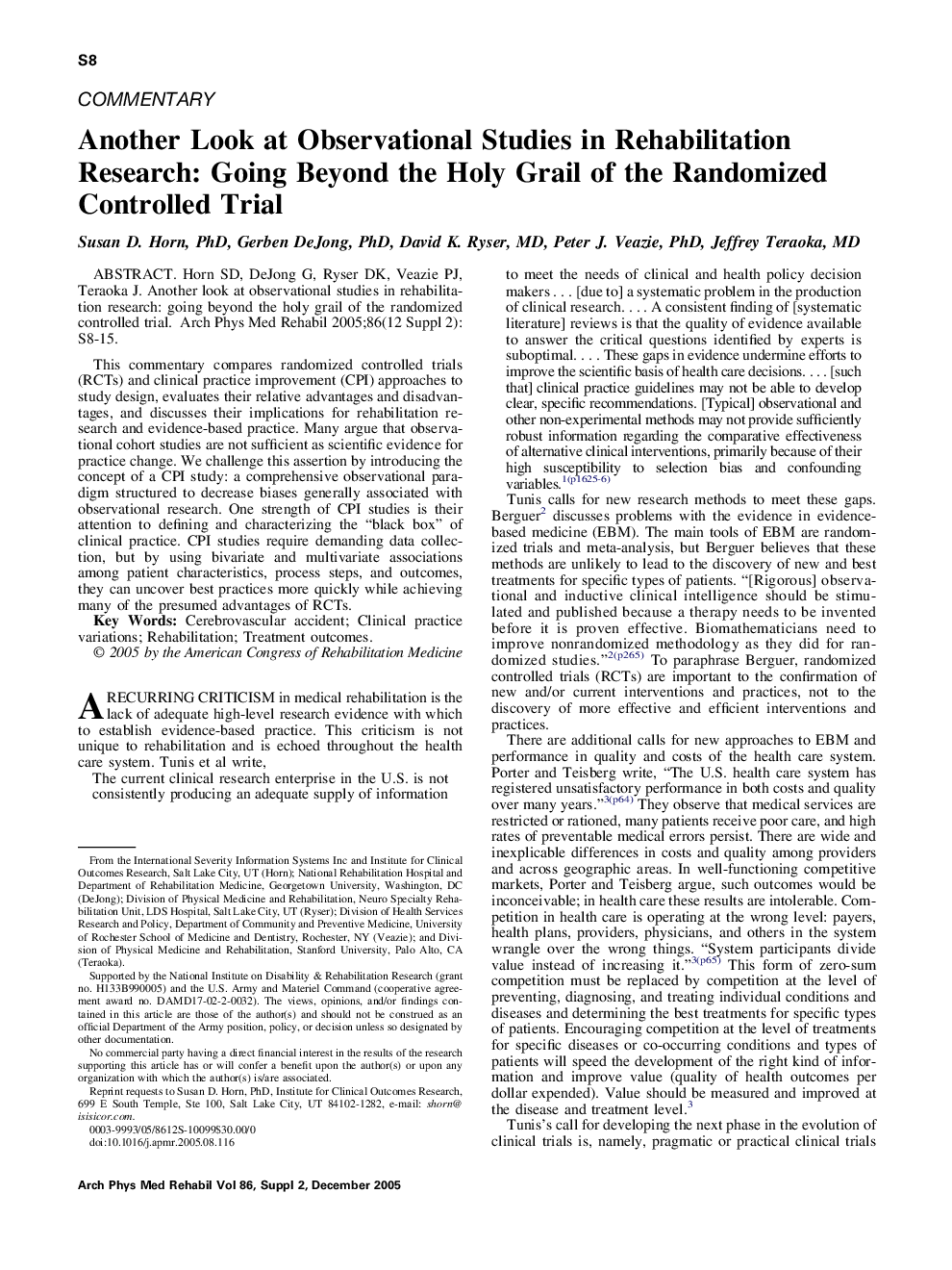| Article ID | Journal | Published Year | Pages | File Type |
|---|---|---|---|---|
| 10041108 | Archives of Physical Medicine and Rehabilitation | 2005 | 8 Pages |
Abstract
This commentary compares randomized controlled trials (RCTs) and clinical practice improvement (CPI) approaches to study design, evaluates their relative advantages and disadvantages, and discusses their implications for rehabilitation research and evidence-based practice. Many argue that observational cohort studies are not sufficient as scientific evidence for practice change. We challenge this assertion by introducing the concept of a CPI study: a comprehensive observational paradigm structured to decrease biases generally associated with observational research. One strength of CPI studies is their attention to defining and characterizing the “black box” of clinical practice. CPI studies require demanding data collection, but by using bivariate and multivariate associations among patient characteristics, process steps, and outcomes, they can uncover best practices more quickly while achieving many of the presumed advantages of RCTs.
Related Topics
Health Sciences
Medicine and Dentistry
Medicine and Dentistry (General)
Authors
Susan D. PhD, Gerben PhD, David K. MD, Peter J. PhD, Jeffrey MD,
